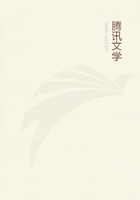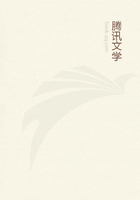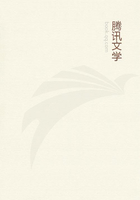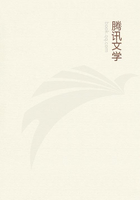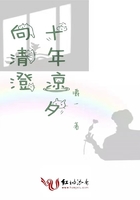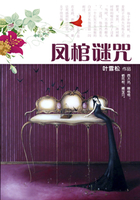The growths of genius are of a certain _total_ character, that does not advance the elect individual first over John, then Adam, then Richard, and give to each the pain of discovered inferiority, but by every throe of growth the man expands there where he works, passing, at each pulsation, classes, populations, of men. With each divine impulse the mind rends the thin rinds of the visible and finite, and comes out into eternity, and inspires and expires its air. It converses with truths that have always been spoken in the world, and becomes conscious of a closer sympathy with Zeno and Arrian, than with persons in the house.
This is the law of moral and of mental gain. The simple rise as by specific levity, not into a particular virtue, but into the region of all the virtues. They are in the spirit which contains them all. The soul requires purity, but purity is not it; requires justice, but justice is not that; requires beneficence, but is somewhat better; so that there is a kind of descent and accommodation felt when we leave speaking of moral nature, to urge a virtue which it enjoins. To the well-born child, all the virtues are natural, and not painfully acquired. Speak to his heart, and the man becomes suddenly virtuous.
Within the same sentiment is the germ of intellectual growth, which obeys the same law. Those who are capable of humility, of justice, of love, of aspiration, stand already on a platform that commands the sciences and arts, speech and poetry, action and grace.
For whoso dwells in this moral beatitude already anticipates those special powers which men prize so highly. The lover has no talent, no skill, which passes for quite nothing with his enamoured maiden, however little she may possess of related faculty; and the heart which abandons itself to the Supreme Mind finds itself related to all its works, and will travel a royal road to particular knowledges and powers. In ascending to this primary and aboriginal sentiment, we have come from our remote station on the circumference instantaneously to the centre of the world, where, as in the closet of God, we see causes, and anticipate the universe, which is but a slow effect.
One mode of the divine teaching is the incarnation of the spirit in a form, -- in forms, like my own. I live in society; with persons who answer to thoughts in my own mind, or express a certain obedience to the great instincts to which I live. I see its presence to them. I am certified of a common nature; and these other souls, these separated selves, draw me as nothing else can. They stir in me the new emotions we call passion; of love, hatred, fear, admiration, pity; thence comes conversation, competition, persuasion, cities, and war. Persons are supplementary to the primary teaching of the soul.
In youth we are mad for persons. Childhood and youth see all the world in them. But the larger experience of man discovers the identical nature appearing through them all. Persons themselves acquaint us with the impersonal. In all conversation between two persons, tacit reference is made, as to a third party, to a common nature. That third party or common nature is not social; it is impersonal; is God. And so in groups where debate is earnest, and especially on high questions, the company become aware that the thought rises to an equal level in all bosoms, that all have a spiritual property in what was said, as well as the sayer. They all become wiser than they were. It arches over them like a temple, this unity of thought, in which every heart beats with nobler sense of power and duty, and thinks and acts with unusual solemnity. All are conscious of attaining to a higher self-possession. It shines for all. There is a certain wisdom of humanity which is common to the greatest men with the lowest, and which our ordinary education often labors to silence and obstruct. The mind is one, and the best minds, who love truth for its own sake, think much less of property in truth. They accept it thankfully everywhere, and do not label or stamp it with any man's name, for it is theirs long beforehand, and from eternity. The learned and the studious of thought have no monopoly of wisdom. Their violence of direction in some degree disqualifies them to think truly. We owe many valuable observations to people who are not very acute or profound, and who say the thing without effort, which we want and have long been hunting in vain.
The action of the soul is oftener in that which is felt and left unsaid, than in that which is said in any conversation. It broods over every society, and they unconsciously seek for it in each other.
We know better than we do. We do not yet possess ourselves, and we know at the same time that we are much more. I feel the same truth how often in my trivial conversation with my neighbours, that somewhat higher in each of us overlooks this by-play, and Jove nods to Jove from behind each of us.
Men descend to meet. In their habitual and mean service to the world, for which they forsake their native nobleness, they resemble those Arabian sheiks, who dwell in mean houses, and affect an external poverty, to escape the rapacity of the Pacha, and reserve all their display of wealth for their interior and guarded retirements.
As it is present in all persons, so it is in every period of life. It is adult already in the infant man. In my dealing with my child, my Latin and Greek, my accomplishments and my money stead me nothing; but as much soul as I have avails. If I am wilful, he sets his will against mine, one for one, and leaves me, if I please, the degradation of beating him by my superiority of strength. But if I renounce my will, and act for the soul, setting that up as umpire between us two, out of his young eyes looks the same soul; he reveres and loves with me.
The soul is the perceiver and revealer of truth. We know truth when we see it, let skeptic and scoffer say what they choose.

